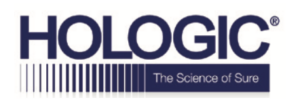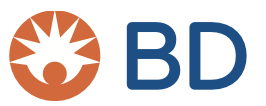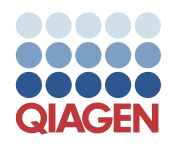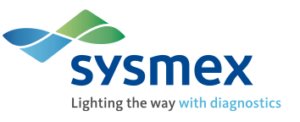This article is re-published here from The Dark Report, a hard-hitting intelligence service.To get a free trial or The Dark Report, click here.
Steep declines in SARS-CoV-2 test revenue were reported by the top in vitro diagnostics (IVD) companies in Q2 2023 earnings compared to a year earlier. For some of those firms, the coronavirus testing drops equate to billions of dollars in lost revenue.
In response to the decreasing demand for COVID-19 testing, IVD manufacturers are scrambling to emphasize other opportunities, including research and development of assays intended to close gaps in clinical laboratory testing menus. Company leaders want to keep their instruments—which ran full tilt performing COVID-19 tests—to be of continuing value to medical labs by introducing new molecular and point-of-care diagnostics.
“This is an interesting consequence of the pandemic,” said Robert Michel, Editor-in-Chief of The Dark Report. “Today, many labs have PCR instruments from three to five vendors, and labs are under pressure to reduce costs by pulling some some brands offline.
“To counter that possibility, IVD manufacturers are adding, for example, tests for a variety of infectious diseases, hoping labs will incorporate these assays to their in-house menu,” Michel added.
New business initiatives also include introduction of mass spectrometers, clinical chemistry and immunochemistry systems, compact testing systems, and more. Here is a summary of financial results and recent launches by companies serving clinical laboratories.

ROCHE: Diagnostics Base Business Grows, COVID-19 Sales Drop
Roche Group in Basel, Switzerland, reported on six months of financial results, as compared to half year of 2022: • Group sales were down 8% to 29.8 billion Swiss francs (CHF) (US$33.6 billion) from 32.3 billion CHF (US$36.5).
- Diagnostics division sales fell 28% to 7.1 billion CHF (US$8 billion) from 9.9 billion CHF (US$11.3 billion). However, excluding declining COVID-19 sales, diagnostics base business rose 6%.
- COVID-19 test product revenue of 400 million CHF (US$460 million) plummeted 87% from 3.1 billion CHF (US$3.5 billion).
- Core lab sales of 3.9 billion CHF ($US 4.4 billion) rose 1.5% from 3.8 billion CHF (US$4.3 billion).
- Molecular lab revenue of 1.1 billion CHF (US$1.2 billion) was down 45% from 2 billion CHF (US$2.1 billion).
- Pathology lab sales of 687 million CHF (US$790 million) increased 5.4% from 652 million CHF (US$750 million).
Regarding base business growth in laboratory diagnostics, the company stated, “The main contributors to growth were immunodiagnostics, particularly cardiac tests, and diagnostics solutions for clinical chemistry.”
As part of a presentation to financial analysts, Matthew Sause, Roche Diagnostics CEO, explained that the new Cobas i601 analytical mass spectrometry unit and assay menu is designed to integrate into the Cobas clinical chemistry and immunochemistry system. Roche plans to launch it next year in Europe with 40 of 60 possible assays available. Food and Drug Administration (FDA) clearance is anticipated in 2025, he added.

HOLOGIC: Diagnostics Sales Fall 21%, Overall Company Revenue Stable
Hologic, based in Marlborough, Massachusetts, reported financial results for Q3 2023 as compared to the prior year period:
- Revenue decreased 1.8% to $984.4 mil- lion compared to $1 billion.
- Revenue, excluding COVID-19 testing, grew 18% to $918.9 million from $778.3 million.
- Diagnostics revenue declined 21.5% to $439.7 million from $560 million.
- Diagnostics revenue, without COVID- 19 testing, was up 11.8% to $374.2 mil- lion from $335.7 million.
The company received FDA clearance for its Panther Fusion SARS-CoV-2/ Influenza A/B/RSV assay.

ABBOTT LABORATORIES: ‘Good Recovery’ as Routine Testing Rebounds
Abbott Laboratories in Abbott Park, Illinois, shared these Q2 2023 financial results as compared to a year earlier:
- Total sales fell 11.4% to $9.9 billion from $11.3 billion.
- Revenue, excluding COVID-19 test sales, was up 11.5%.
- COVID-19 testing revenue nosedived 89% to $263 million from $2.3 billion.
- Diagnostic sales fell 46% to $2.3 billion from $4.2 billion.
- Core laboratory sales were up 5% to $1.3 billion.
- Molecular sales dropped 33.4% to $141 million from $212 million.
“We have had a really, really good recovery as … we are seeing routine testing come back,” said CEO Robert Ford during an earnings call with financial analysts and investors on July 20.
Ford shared with analysts Abbott’s focus on research and development of assays that may not currently be on customers’ test menus. “We’ve been working on expanding the menu in molecular and point-of-care,” he noted. “One of the most exciting assays that the team has developed for point-of-care is a rapid test for traumatic brain injury.”
In March, Abbott secured FDA clearance for a brain-injury blood test to run on the company’s Alinity clinical laboratory analyzers.

THERMO FISHER: Q2 Revenue Down, Lab Revenue Up 5%
Thermo Fisher Scientific in Waltham, Massachusetts, shared shared these Q2 2023 results versus Q2 2022:
- Revenue declined 3% to $10.7 billion from $11 billion.
- Laboratory products and biopharmaceutical services revenue increased 5% to $5.8 billion from $5.5 billion.
- Life sciences revenue fell 25% to $2.5 billion from $3.3 billion.
- Analytical instruments revenue was up 6% to $1.7 billion from $1.6 billion.
- Specialty diagnostics revenue was flat at $1.1 billion.
The Dark Report recently ranked Thermo Fisher the top IVD company by global revenue for 2022. (See TDR, “2022 Ranking of the World’s Top 12 IVD Corporations,” July 31, 2022.)
Following FDA breakthrough designation and clearance, Thermo Fisher launched testing to assess a mother’s risk of developing severe preeclampsia during pregnancy, commented CEO Marc Casper during an earnings call on July 26. The immunoassays report gives results in 30 minutes.
Also, Casper called Thermo Fisher Scientific’s new Orbitrap Astral mass spectrometer a “significant advancement in mass spectrometry.”
During the call’s Q&A session, Casper noted the expected effects on business from cautious customers who face financial pressures from an uncertain global economy and higher interest rates.
“We think the customer will be a little bit more muted in spending,” Casper continued. “It’s really not pinned to one area, but just a spread across the portfolio—probably with instruments feeling the most impact.”

QUIDELORTHO: Order Backlog for Lab Instruments Down by 40%
QuidelOrtho in San Diego reported Q2 data as compared to Q2 2022:
- Revenue of $665.1 million increased 8% from $613.4 million.
- Lab revenue of $361.4 million was up 5.7% from $342 million.
- Point-of-care revenue of $134.2 revenue plunged 63.4% from $367 million.
- Molecular diagnostics revenue plummeted 70% to $6.2 million from $20.7 million.
QuidelOrtho was able to put a serious dent in its backlog of orders for lab instruments, said CEO Douglas Bryant during an earnings call on Aug. 9.
“Instrument demand remained healthy across all regions,” Bryant noted. “Focused execution by our operations team enabled us to produce nearly 10% more instruments than our record-breaking first quarter and reduced our instrument backlog in our labs business by approximately 40%. These efforts enabled us to ship more instruments than previously anticipated in the quarter.”
The launch of the Savanna molecular platform will be a high priority once FDA clearance is received, Bryant said. The initial test menu in the U.S. will include panels for respiratory viruses, herpes simplex virus, and varicella zoster virus.

BECTON, DICKINSON AND COMPANY: Life Sciences Down 6.3%, More Molecular Tests Planned
Becton, Dickinson and Company (BD) in Franklin Lakes, New Jersey, reported these Q3 revenues:
- Revenue increased 5% to $4.9 billion from $4.6 billion year over year.
- Life sciences (including integrated diagnostics and biosciences business units) dropped 6.3% to $1.2 billion from $1.3 billion.
- Revenue from base business grew 6.7% to $4.8 billion from $4.5 billion.
During an earnings call on Aug. 4, CEO Thomas Polen highlighted the opportunity for the company’s molecular diagnostic testing system, BD COR. “Overall, BD COR enables entry into the high-volume molecular diagnostics segment, which is expected to grow at a 9% [compound annual growth rate] to a $2.9 billion served marketplace by 2025,” Polen said.
“With COVID being a more endemic condition, we continue to expand our offering. We have launched multiple respiratory panels on both BD COR and BD MX for detection of multiple respiratory pathogens from one sample,” he added.
Also, in May the company received FDA clearance for the new BD Kiestra MRSA imaging application, which uses artificial intelligence to interpret bacterial growth from methicillin-resistant Staphylococcus aureus.

QIAGEN: NON-COVID-19 TESTING REVENUE JUMPS 8%
Qiagen, headquartered in Venlo, Netherlands, reported Q2 financial results as compared Q2 2022:
- Sales of $495 million, a decrease of 4% from $516 million.
- Sales, without COVID-19 testing, went up 8% to $457 million.
- Instrument sales of $60 million, a decrease of 4% from $63 million.
- Molecular diagnostics sales of $260 mil- lion were up 2% from $255 million.
- Life sciences sales of $235 million were down 10% from $261 million.
Genomics and next-generation sequencing product sales rose by 12% year over year in Q2, the company reported.

SIEMENS HEALTHINEERS: Diagnostics Revenue Falls 23%, More Emphasis on Atellica
Siemens Healthineers in Erlangen, Germany, noted these results for its Q3, as compared to Q3 2022:
- Revenue was flat at €5.2 billion (US$5.6 billion) year over year.
- Revenue, excluding COVID-19 testing, grew 10%.
- Diagnostics revenue dropped 23% to €1 billion (US$1.09 billion) from €1.4 billion (US$1.5 billion).
- Diagnostics revenue, without rapid antigen testing, grew 2%.
COVID-19 testing sales appeared to have bottomed out at Siemens Healthineers, as the company reported that “no appreciable revenues were booked in the third quarter” for rapid antigen testing.
In July, the Atellica CI Analyzer for immunoassay and clinical chemistry received FDA clearance after delays. The new analyzer automates sample preparation and workflows in lower-to-mid-volume labs.
As part of the overall focus on the Atellica brand, Siemens is sunsetting some legacy analyzers. Sharon Bracken, Head of Diagnostics at the company, told GenomeWeb in May that the ADVIA Centaur, ADVIA Chemistry, and Dimension lines are reaching end-of-life stage.

DANAHER: Diagnostics Sales Down 13%, New Tests From Cepheid
Danaher in Washington, D.C.—parent company of Beckman Coulter Diagnostics, Cepheid, and Leica Biosystems—announced these Q2 results as compared to the prior year period:
- Revenue was down 7.5% to $7.2 billion from $7.7 billion.
- Base business, without COVID-19 test- ing declines, grew 2%.
- Diagnostics division sales fell 13% to $2.2 billion from $2.6 billion.
- Life sciences revenue was up 5% to $1.8 billion from $1.7 billion.
Cepheid, which sells molecular diagnostics systems, had $300 million in Q2 respiratory testing revenue—$125 million more than the company projected. The results were due to “high volumes and a preference for our four-in-one test for COVID-19, Flu A, Flu B, and RSV [respiratory syncytial virus],” said Danaher CEO Rainer Blair during an earnings call on July 25.
“With COVID-19 now in endemic state, we believe Cepheid is continuing to take share as many customers look to consolidate their point-of-care and PCR testing platforms onto the [Cepheid] GeneXpert for both respiratory and non-respiratory testing,” Blair said.
Meanwhile, in Q2 Beckman Coulter introduced the Dxl Access 9000 immunoassay analyzer. “The Dxl 9000 will enable Beckman to provide a full menu of blood virus assays over time, closing an important menu gap and further enhancing the breadth and clinical value of our test menu,” Blair told analysts.
Blair added that despite the drop quarter over quarter, core diagnostics performance (i.e., non-COVID-19 revenue) was welcome news. “Our clinical diagnostics businesses collectively delivered mid-single-digit core revenue growth,” he explained. “Leica Biosystems led the way with high single-digit core growth driven by strength in core histology and advanced staining. Beckman Coulter Diagnostics was up mid-single digits again this quarter, with solid performance across both instruments and consumables and notable strength in immunoassay.”

SYSMEX CORPORATION: Sales Up More than 10%, Offers Alzheimer’s Test
Sysmex, with headquarters in Hyōgo, Japan, reported financial results for Q1 FY 2024 ending June 30 as compared to the prior year period:
- Sales were up 10.8% to ¥95.3 billion yen (US$660 million).
- Sales in the Americas were up 17% to ¥27 billion (US$187 million) from ¥23 billion (US$160 million).
In Japan, the company recently launched a clinical flow cytometry system, which optically analyzes microscopic particles. Also in Japan, Sysmex now markets an assay kit to identify amyloid beta accumulation in the brain—a cause of Alzheimer’s disease—using a small amount of blood.

BIO-RAD LABORATORIES: Clinical Diagnostics Revenue Up 3.3%
Bio-Rad Laboratories, in Hercules, California, shared these Q2 2023 financial results as compared to Q2 2022:
- Sales were down 1.4% to $681.1 million from $691.1 million.
- Clinical diagnostics segment revenue was up 3.3% to $380 million.
- COVID-19 sales were $0.4 million, plunging from $33 million.
- Life science segment revenue of $300.2 million was down 6.9%.
A demand for diabetes testing systems and blood typing drove an increase in clinical diagnostics sales, while Droplet Digital PCR and quantitative PCR products were credited with the non- COVID-19 uptick in life science segment revenue, Bio-Rad reported.
“During the second quarter, we significantly reduced the backlog of customer orders in our life science business, and we remain on track to work down slightly elevated back orders in clinical diagnostics during the remainder of this year,” CEO Norman Schwartz said.
In July, Bio-Rad and Qiagen announced that they had settled a patent dispute pending in the U.S. District Court of Delaware related to digital PCR technology. The settlement provides for a cross-licensing agreement between the firms, granting each company mutual rights to their respective technologies. No other details were provided.
Editor’s note: At press time, bioMérieux in Marcy-l’Étoile, France did not have Q2 financials available